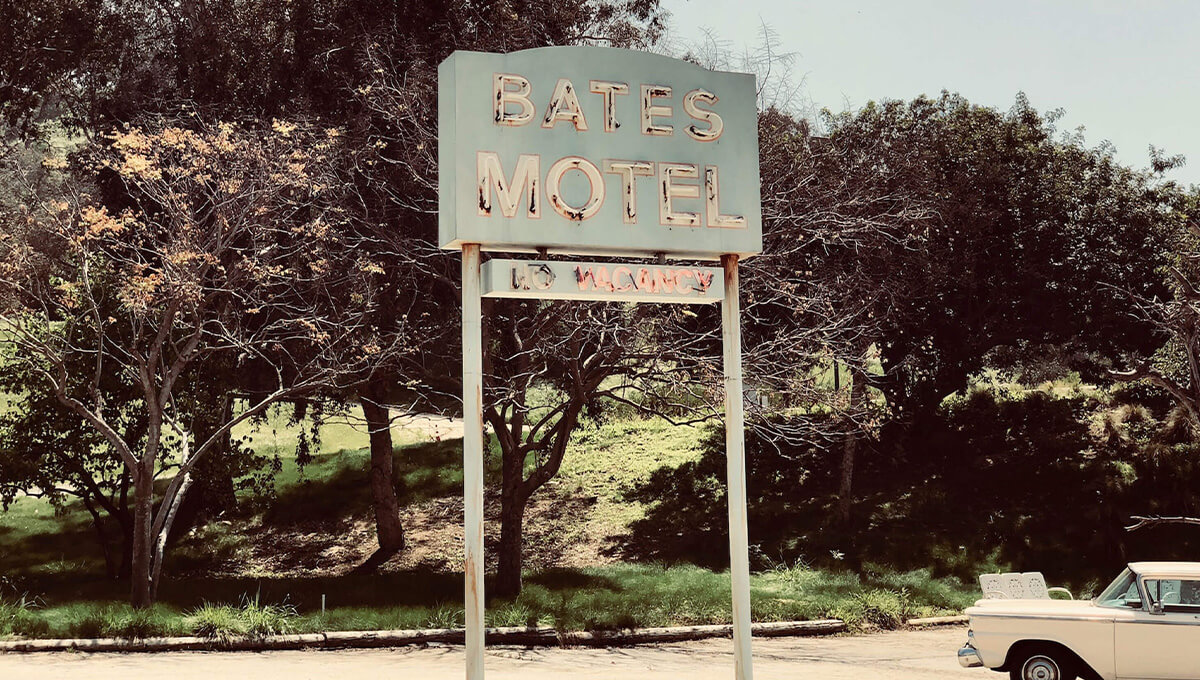"Psycho," released in 1960, is a landmark film in the horror genre and is often regarded as one of Alfred Hitchcock's masterpieces. The film is notable for its innovative narrative structure, psychological depth, and groundbreaking techniques in suspense and horror.
Plot Summary
The story begins with Marion Crane, played by Janet Leigh, who works as a secretary in Phoenix, Arizona. After stealing $40,000 from her employer to start a new life with her boyfriend, Sam Loomis (John Gavin), she decides to drive to California. During her journey, she stops at the secluded Bates Motel, run by the enigmatic Norman Bates (Anthony Perkins), a seemingly shy and awkward young man who lives with his domineering mother.
As the plot unfolds, Marion's stay at the motel takes a dark turn. In one of the film's most iconic scenes, she is brutally murdered in the shower, a shocking moment that was unprecedented in cinema at the time. This scene, accompanied by Bernard Herrmann's chilling score, has become one of the most famous in film history.
Following Marion's death, the narrative shifts focus to her sister, Lila Crane (Vera Miles), and Sam, who become concerned about her disappearance. They begin to investigate, leading them to the Bates Motel and uncovering the disturbing truth about Norman and his mother.
Themes and Techniques
"Psycho" explores themes of identity, duality, and the nature of madness. Norman Bates is a complex character, embodying both victim and perpetrator, which raises questions about the nature of evil and the impact of trauma.
Hitchcock's direction employs various innovative techniques, such as the use of stark black-and-white cinematography, which enhances the film's eerie atmosphere. The editing, particularly in the shower scene, is masterful, creating a sense of chaos and horror without showing excessive violence.
Cultural Impact
"Psycho" was groundbreaking for its time, pushing the boundaries of what was acceptable in mainstream cinema. It is credited with establishing many conventions of the horror genre, including the "final girl" trope and the use of psychological horror. The film's influence can be seen in countless works that followed, and it has been analyzed extensively in film studies.
The film also spawned several sequels, a remake in 1998, and a television series titled "Bates Motel," which explores Norman Bates's backstory. "Psycho" remains a critical and cultural touchstone, celebrated for its artistry and its lasting impact on the horror genre.
Production
"Psycho" was produced by Alfred Hitchcock's own production company, Shamley Productions, and was released by Paramount Pictures. The film was based on Robert Bloch's 1959 novel of the same name, which was inspired by the real-life crimes of Ed Gein, a notorious murderer and body snatcher. Hitchcock, known for his meticulous attention to detail, was heavily involved in every aspect of the film's production, from the screenplay to the editing.
To keep the film's budget low, Hitchcock used a television crew and shot the film in black and white, which not only reduced costs but also contributed to the film's stark and unsettling atmosphere. The decision to shoot in black and white was also a creative choice, allowing for greater contrast and shadow, which heightened the suspense and horror elements.
Cast and Characters
-
Janet Leigh as Marion Crane: Leigh's performance as the film's ill-fated protagonist is one of her most memorable roles. Her character's moral ambiguity—stealing money and seeking a new life—adds complexity to her eventual fate.
-
Anthony Perkins as Norman Bates: Perkins' portrayal of Norman Bates is iconic. His performance captures the character's duality—his boyish charm and underlying menace. Perkins was nominated for an Academy Award for Best Supporting Actor for his role.
-
Vera Miles as Lila Crane: Miles plays Marion's sister, who becomes determined to uncover the truth behind her sister's disappearance. Her character represents the search for justice and truth.
-
John Gavin as Sam Loomis: Gavin plays Marion's boyfriend, who is also drawn into the investigation of her disappearance.
-
Martin Balsam as Arbogast: Balsam plays the private investigator hired to find Marion. His character's fate serves as another shocking twist in the film.
Critical Reception
Upon its release, "Psycho" received mixed reviews from critics, with some praising its innovative approach to horror and others criticizing its violence. However, it quickly gained popularity with audiences, becoming a box office success. The film's shocking twists and turns, particularly the infamous shower scene, captivated viewers and sparked discussions about morality, sexuality, and violence in cinema.
Over time, "Psycho" has been re-evaluated and is now considered one of the greatest films of all time. It holds a 96% approval rating on Rotten Tomatoes and is frequently included in lists of the best films ever made.
Legacy and Influence
"Psycho" has had a profound impact on the horror genre and filmmaking as a whole. It is credited with redefining the genre, moving away from traditional monster movies to a more psychological form of horror that focuses on the human mind and its complexities.
Influence on Horror
-
Psychological Horror: "Psycho" paved the way for psychological horror films that explore the darker aspects of human nature. It influenced filmmakers like Brian De Palma, David Lynch, and many others who would explore similar themes in their work.
-
Slasher Genre: The film is often cited as a precursor to the slasher genre, which emerged in the 1970s and 1980s with films like "Halloween" and "Friday the 13th." The use of a masked killer, the "final girl" trope, and the emphasis on suspense and shock can be traced back to "Psycho."
-
Cinematic Techniques: Hitchcock's use of editing, sound, and camera angles in "Psycho" has been studied and emulated by filmmakers for decades. The shower scene, in particular, is a masterclass in editing and sound design, using quick cuts and a haunting score to create tension and fear.
Cultural Impact
"Psycho" has permeated popular culture, inspiring countless parodies, references, and homages in various media, including television shows, cartoons, and other films. The Bates Motel has become a cultural icon, and the character of Norman Bates is often referenced in discussions about cinematic villains.
The film's themes of identity, madness, and the duality of human nature continue to resonate with audiences, making "Psycho" a timeless classic. Its influence can be seen in modern horror films that explore similar psychological themes and in the way filmmakers approach suspense and character development.
Conclusion
In summary, "Psycho" is not just a horror film; it is a significant work of art that has shaped the landscape of cinema. Its innovative storytelling, complex characters, and psychological depth have left an indelible mark on the film industry and continue to inspire filmmakers and audiences alike. The film's legacy endures, making it a vital part of film history and a cornerstone of the horror genre.







